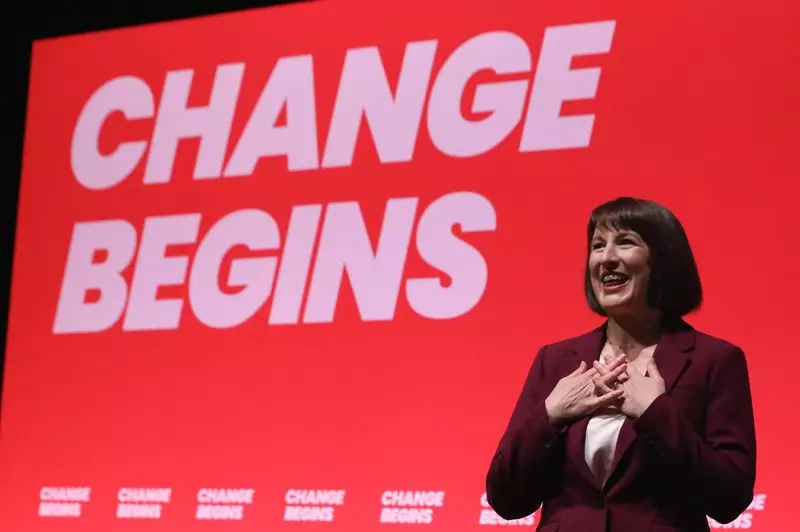In an unexpected departure from the prevailing sentiment, British finance minister Rachel Reeves articulated a vision for the future of Britain’s finances that seeks to transcend the narrative of austerity. Speaking at the Labour Party’s annual conference in Liverpool, Reeves aimed to uplift spirits that had dampened since her party’s decisive victory in the past July elections. The backdrop against which these remarks were made is a country grappling with the lingering effects of the Conservatives’ austerity measures imposed in the wake of the 2008 financial crisis. While Reeves was determined to sound a note of optimism, the specifics surrounding her assertions raised questions about their feasibility and the roadblocks that may lie ahead.
Reeves emphasized her commitment to a narrative of hope, focusing on the necessity of investing in key sectors such as manufacturing and services to unlock new opportunities for the British populace. The promise of robust economic growth, where hard work is compensated fairly, paints an appealing picture—a stark contrast to the economic constraints imposed by austerity measures. However, despite the aspirations expressed, the minister fell short of providing a timeline for when these optimistic projections could materialize. This lack of clarity might lead to skepticism among voters who have endured years of fiscal difficulty. The absence of concrete plans raises critical questions about whether Reeves’ ambitions can indeed translate into actionable policies.
A consistent thread in Reeves’ address was the acknowledgment of the “Tory legacy” that Labour must confront. She openly discussed the challenging circumstances that require difficult decisions, even hinting at potential cuts in order to bridge the significant fiscal gap inherited from previous governance. This stance reflects a pragmatic approach but introduces an inherent paradox: how can Labour promise growth while simultaneously preparing the public for the tough choices necessary to rectify the financial mess left behind by the Conservatives? Her admission of the shortcomings of the previous administration, particularly the £22 billion hole in public finances, served as both a justification and an impediment to her optimism.
Reeves’ determination to project optimism was evident as she stated, “My optimism for Britain burns brighter than ever.” However, marketing such optimism becomes fraught with challenges when accompanied by a promise of rigorous decision-making and austerity avoidance. She announced initiatives like free breakfast clubs for primary school children, seeking to demonstrate immediate returns on her ambitious vision. Yet, could such initiatives genuinely offset the public’s concerns about economic stability and the reality of cost-of-living challenges they currently face?
Balancing Acts: Stability and Growth
At the core of Reeves’ argument was the assertion that political stability is essential for attracting investment and ensuring economic growth. She illustrated the delicate balancing act required to navigate mounting government debt, which stands at a staggering 100% of the nation’s GDP. Her promise not to raise taxes on income, National Insurance, or other key levies nods towards a promise to safeguard ordinary citizens amid broader fiscal reforms. However, such rhetoric also raises questions about the extent to which investment in public services and infrastructure can genuinely flourish without additional funding mechanisms.
As Reeves embarked on this path of reconceptualizing Labour’s economic narrative, it is vital for the party to address the growing public doubts that could undermine its credibility. The emphasis on avoidance of austerity, paired with the weight of prior government failures, necessitates an honest discourse with the electorate about the practicalities of her ambition for growth. The forthcoming months will demand not just bold promises but actionable steps to reassure the public that a brighter economic future is attainable. In an environment where consumer confidence teeters, constructive dialogue coupled with pragmatic solutions will be critical in transforming Labour’s vision into reality.

